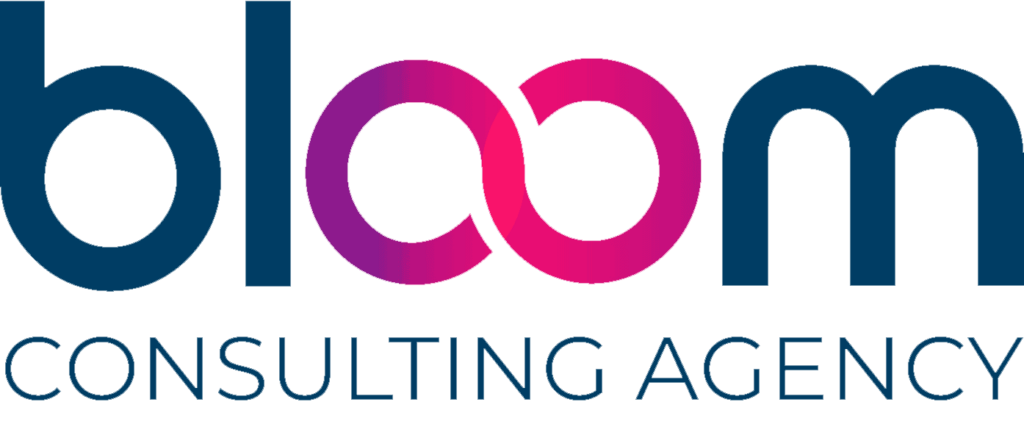Why Healthcare Practices Choose Professional Outsource Medical Billing Services
The healthcare industry continues to evolve rapidly, with medical practices facing increasing pressure to optimize their revenue cycles while maintaining exceptional patient care. One of the most significant decisions healthcare providers face is whether to handle medical billing in-house or outsource medical billing to specialized companies. This resource explores everything you need to know about outsourcing medical billing, including the complexities of billing and coding companies and how to choose the right provider for your practice.
Medical billing outsourcing has become a strategic necessity for healthcare practices of all sizes, from small private practices to large multi-specialty organizations. The complexity of modern healthcare reimbursement, combined with constantly changing regulations and coding requirements, makes professional billing services an attractive solution for many providers.
What is Medical Billing Outsourcing?
Outsource medical billing involves partnering with specialized billing and coding companies to handle your practice’s entire revenue cycle management. These outsourced billing companies employ trained professionals who manage everything from patient registration and insurance verification to claim submission and payment posting.
Unlike in-house billing teams, medical billing outsourcing companies focus exclusively on revenue cycle management, staying current with the latest industry changes, regulations, and best practices. They utilize advanced EMR systems, sophisticated reporting tools, and established relationships with insurance companies to maximize reimbursement rates.
Benefits of Outsource Medical Billing
Outsourcing medical billing allows professionals to design the perfect team to manage the demands of a practice. Professional billing companies ensure their billers are compliant with patient information protection, carry out excellent customer service protocols, and answer patient calls to ensure patients are educated and engaged. They also lower administrative costs and communicate directly with the practice manager for issues that may arise. Additionally, benefits of the billing team include them monitoring the following:
- Registration of patients: Medical billers communicate with the registration staff in this important initial step to relay any change of insurance, outstanding balances, or missed payments. Insurance verification and collection of copays from face-to-face contact with patients include copies of insurance cards, changes in coordination of benefits, and collection of overdue balances.
- Charge capture and entry: Medical billing experts are trained in the software chosen by the practice and specialty involved. Reviewing all charges sent by the provider to evaluate codes, diagnosis, modifiers, and authorizations needed. Billers are chosen who are trained in the chosen Clearinghouse to transmit the practice’s claims to the insurance companies, billers correct errors found in the Clearinghouse to optimize the clean claim percentages by reviewing every field in the 1500 HCFA form to reduce denials and corrections.
- Payments: Billers must post payments in the software. As insurance companies issue payments to the providers, they also assign monetary responsibilities to the patient. Daily matching insurance payments to bank accounts, posting payments, and reporting denials are sent to the person working follow-up. Statements, appeals, and monthly reports are included to reach all aspects of the cycle. The team works hard to keep the denial rates low. These are important factors outsource medical billing teams are trained to optimize, so that revenue can be maximized for the practice.
Types of Medical Billing Outsourcing Services
Specialty-Specific Billing Services
Different medical specialties require specialized knowledge and expertise. Here are the main categories:
ABA Therapy Billing Companies
ABA billing company services require specialized knowledge of Applied Behavior Analysis coding and documentation requirements. The best ABA billing companies understand the unique challenges of autism spectrum disorder treatment billing, including session-based billing, behavior modification documentation, and specialized insurance authorization processes. Top providers of ABA therapy billing services must navigate complex Medicaid billing requirements and private insurance policies specific to behavioral interventions.
Mental Health Billing Companies
Mental health insurance billing requires expertise in behavioral health medical billing codes, therapy session documentation, and complex insurance authorization processes. Behavioral health billers must understand how to bill Medicaid for mental health services, manage out-of-network billing service requirements, and handle the specific documentation needs of psychologist billing services. Behavioral health billing clinic operations require specialized knowledge of treatment plan documentation and outcome reporting.
Substance Abuse Billing Services
Substance abuse billing services require specialized expertise in addiction treatment coding, complex documentation requirements, and navigating the unique reimbursement landscape for behavioral health services. Professional substance abuse billing companies understand the intricacies of billing for detoxification services, residential treatment programs, intensive outpatient programs (IOP), and medication-assisted treatment (MAT). These specialized billers must be well-versed in ASAM (American Society of Addiction Medicine) criteria documentation, prior authorization requirements for extended treatment stays, and the specific coding requirements for substance use disorder treatments. Additionally, substance abuse billing specialists must navigate varying state Medicaid policies, understand confidentiality requirements under 42 CFR Part 2, and handle the complex billing scenarios associated with dual diagnosis treatments that combine substance abuse and mental health services. The best substance abuse billing companies maintain current knowledge of evolving regulations, insurance coverage policies, and the specific documentation standards required for successful reimbursement in this highly regulated specialty area.
Therapy Billing Services
Outpatient therapy billing encompasses physical therapy, occupational therapy, and speech therapy services. These billing services for MSO (Management Service Organizations) require understanding of therapy-specific codes, treatment authorization processes, and outcome measurement requirements.
DME Medical Billing Companies
Durable Medical Equipment (DME) billing requires specialized knowledge of equipment coding, supplier enrollment, and complex Medicare and Medicaid requirements. DME medical billing companies must navigate unique documentation requirements and supplier standards.
Home Health Billing Company Services
Outsourced home health billing requires expertise in episode-based billing, OASIS documentation, and skilled nursing facility coordination. Home health billing companies must understand Medicare home health prospective payment systems and quality reporting requirements.
Comprehensive Revenue Cycle Management
Medical Billing and Coding Outsourcing Companies
Full-service outsource medical billing and coding companies provide end-to-end revenue cycle management. These services include patient registration, insurance verification, medical coding service, claim submission, payment posting, and collections management.
Medical Electronic Billing
Modern medical electronic billing systems integrate with EMR systems to streamline the entire billing process. Electronic billing reduces errors, speeds up claim processing, and provides real-time reporting capabilities.
Clearinghouse for Medical Billing
Professional medical billing companies in Florida utilize clearinghouse for medical billing services to ensure claims are properly formatted and submitted to insurance companies. This technology reduces claim denials and accelerates payment processing.
Guide to Medical Billing: Outsourcing vs. In-House
Advantages of Outsourcing Medical Billing
Cost-Effectiveness
One of the biggest benefits of outsourcing your clinic’s medical billing is the significant cost savings. By eliminating the need for in-house billing staff, your practice can avoid expenses related to salaries, employee benefits, training programs, and billing software. Instead, most third-party billing and coding companies charge a percentage of collected revenue. This model aligns their success directly with your financial performance, creating a mutually beneficial relationship.
Expertise and Compliance
In addition to cost savings, outsourcing provides access to specialized expertise. Professional billing companies stay up to date with the latest coding updates, insurance regulations, and compliance standards. They often invest in continuing education and certifications—resources that may be too costly or time-consuming for your internal team to maintain. As a result, your practice benefits from increased accuracy and reduced risk of compliance violations.
Advanced Technology
Another key benefit is access to advanced billing technology. Outsourced providers typically use state-of-the-art billing software, integrated EMR systems, and robust reporting tools. These tools enable faster claims processing, better reporting capabilities, and more effective denial management. Consequently, your practice is better equipped to handle payer audits and avoid common issues like recoupments or pre-payment investigations caused by billing mistakes or coding errors.
Scalability
Finally, outsourced billing services offer scalability. As your practice expands, these services can quickly adapt to increased volume without requiring you to hire and train new staff. This flexibility allows your clinic to grow efficiently while maintaining high standards in revenue cycle management.
Disadvantages of In-House Billing
- Higher Costs In-house billing requires significant investment in staff, training, software, and ongoing education. The total cost often exceeds the percentage fee charged by professional billing services.
- Limited Expertise In-house staff may lack specialized knowledge required for complex billing scenarios, leading to increased denials and reduced reimbursement rates.
- Technology Limitations Smaller practices often cannot afford the advanced billing technology and reporting tools available through professional billing services.
How to Find an Outsourced Billing Company
Key Factors to Consider
- Industry Experience: Look for third party billing companies with specific experience in your medical specialty. Whether you need ABA outsourced billing companies, mental health billing services, or general medical billing, specialty experience is crucial.
- Technology Infrastructure Ensure the billing company uses modern EMR systems integration, electronic claims submission, and comprehensive reporting tools. Ask about their clearinghouse relationships and claim submission processes.
- Compliance and Certification Verify that the billing company maintains current certifications, follows HIPAA compliance protocols, and stays updated on industry regulations.
- Reporting Capabilities Professional billing companies should provide comprehensive reporting on key performance indicators, denial rates, collection rates, and financial performance.
Red Flags to Avoid When Selecting Outsource Medical Billing Companies
- Unrealistic Promises: Be wary of companies that guarantee specific collection rates or promise unrealistic improvements in revenue.
- Lack of Transparency: Avoid companies that are not transparent about their processes, pricing, or reporting capabilities.
- Poor Communication: Effective communication is essential for successful billing partnerships. Companies that are difficult to reach or unresponsive should be avoided.
Key Financial and Billing Reports Every Practice Needs
Monitoring your revenue cycle with consistent reporting is essential for maintaining financial health and identifying areas for improvement. Below are the must-have reports, organized by reporting frequency.
Monthly Reports
- Revenue Cycle Performance: Start with a comprehensive overview of your revenue cycle. These reports should include total charges, payments received, adjustments, and net collections. In addition, track key performance indicators (KPIs) such as days in accounts receivable (A/R) and collection rates to evaluate overall financial performance.
- Denial Management: Next, include detailed denial management reports. These should highlight claim denial reasons, appeal statuses, and resolution timelines. By identifying recurring issues, your practice can make strategic changes to reduce denials and improve reimbursement efficiency.
- Insurance Performance: It’s also critical to track performance by payer. These reports provide insights into average payment turnaround times, denial rates, and other trends for each insurance carrier. This information can help negotiate contracts and optimize payer relationships.
- Accounts Receivable Aging: Aging reports categorize outstanding balances by time intervals (e.g., 30, 60, 90+ days). These reports are essential for prioritizing collection efforts and identifying aging accounts that may require follow-up or escalation.
Weekly Reports
- Cash Flow: Weekly cash flow reports give you a snapshot of payment trends, which can then help you plan for operational expenses and ensure that incoming revenue aligns with your clinic’s financial needs.
- Claim Status: Equally important, weekly claim status reports monitor each claim’s progression through submission, acceptance, and payment. This visibility allows for early identification of delays or potential rejections.
Daily Reports
- Deposit Tracking: In addition, daily deposit reports track all payments received and deposited, including both insurance and patient payments. By maintaining these records consistently, your practice ensures financial transparency and facilitates accurate reconciliation.
- Claim Submissions: Lastly, daily claim submission reports play a vital role in managing workflow. In many cases, they reveal errors or rejections that require prompt action, thereby helping to prevent reimbursement delays.
Pricing for Outsourcing Medical Billing
Typical Pricing Models
- Percentage of Collections: Most medical billing outsourcing companies charge between 4-8% of collected revenue. This model aligns the billing company’s success with your practice’s financial performance.
- Flat Fee Pricing: Some companies offer flat monthly fees, which can be beneficial for high-volume practices but may not be cost-effective for smaller practices.
- Hybrid Pricing: Some providers offer combination pricing models that include both percentage and flat fee components.
Factors Affecting Pricing
- Practice Size: Larger practices typically negotiate lower percentage rates due to higher volume.
- Specialty Complexity: Specialized billing services such as ABA therapy billing companies or DME medical billing companies may charge higher rates due to increased complexity.
- Service Level: Comprehensive revenue cycle management services typically cost more than basic billing services.
- Technology Requirements: Integration with specific EMR systems or advanced reporting requirements may affect pricing.
Selecting the Best Medical Billing Outsourcing Companies
Top Qualities to Look For
- Proven Track Record: Look for companies with demonstrated success in your specialty area, whether that’s general medical billing, ABA therapy billing, or specialized services like pharmacy billing and reimbursement.
- Advanced Technology: The best companies invest in cutting-edge billing software, EMR integration, and reporting tools that provide real-time visibility into your practice’s financial performance.
- Comprehensive Services: Top providers offer complete revenue cycle management, including patient registration, insurance verification, medical coding service, claim submission, payment posting, medical billing audits, and collections.
- Transparency and Communication: The best billing companies provide regular communication, detailed reporting, and transparent processes that help you understand your practice’s financial performance.
Questions to Ask Potential Billing Companies?
- What is your experience with my medical specialty?
- What EMR systems do you integrate with?
- What are your average collection rates for similar practices?
- How do you handle denied claims?
- What reports will I receive and how frequently?
- What is your pricing structure?
- How do you ensure HIPAA compliance?
- What is your staff turnover rate?
- How do you handle emergency situations?
- What is your client retention rate?
The Future of Medical Billing Outsourcing
Emerging Trends
- Artificial Intelligence Integration: AI-powered billing systems are becoming more sophisticated, helping to identify coding errors, predict claim denials, and optimize revenue cycle performance.
- Value-Based Care: As healthcare shifts toward value-based care models, billing companies are adapting their services to handle quality metrics reporting and outcome-based reimbursement.
- Telehealth Integration: The growth of telehealth services also requires billing companies to understand new coding requirements and reimbursement models for virtual care services.
- Advanced Analytics: Sophisticated reporting and analytics tools provide deeper insights into revenue cycle performance and help identify opportunities for improvement.
Frequently Asked Questions (FAQ)
Q: How long does it take to transition to an outsourced billing company?
A: The transition typically takes 30-60 days, depending on the complexity of your practice and the systems involved. A well-planned transition includes data migration, staff training, and testing phases to ensure continuity of billing operations.
Q: Will I lose control over my billing process?
A: No, reputable billing companies provide regular reports and maintain open communication channels. You retain oversight and decision-making authority while benefiting from professional expertise.
Q: How do I ensure patient confidentiality is maintained?
A: Ensure your billing company is HIPAA compliant, has appropriate security measures in place, and provides regular compliance training to their staff. Once verified, request documentation of their security protocols and compliance certifications.
Q: What happens if the billing company makes errors?
A: Professional billing companies should have error correction processes in place and may provide guarantees or insurance coverage for errors. Discuss error resolution procedures before signing a contract.
Q: Can I switch billing companies if I’m not satisfied?
A: Yes, most contracts include termination clauses. However, switching can be disruptive, so it’s important to choose the right provider initially through thorough research and evaluation.
Q: How do billing companies handle patient inquiries?
A: Many billing companies can provide patient customer service as part of their services. This means the third party billing company can handle billing inquiries, payment arrangements such as patient statements, and insurance questions directly with patients.
Q: What is the difference between medical billing and medical coding?
A: Medical coding involves translating medical procedures and diagnoses into standardized codes, while medical billing involves submitting claims to insurance companies and managing payments. Many outsourced companies provide both services.
Q: How do I know if outsourcing is right for my practice?
A: Consider outsourcing if you’re experiencing high denial rates, delayed payments, staff turnover in your billing department, or if your current billing costs exceed 6-8% of your revenue.
Q: Do billing companies work with all insurance carriers?
A: Most professional billing companies work with major insurance carriers and have established relationships that can help expedite claim processing. However, confirm that they work with your specific insurance mix.
Q: How do billing companies handle appeals and denials?
A: Professional billing companies have dedicated staff for managing denials and appeals. Additionally, they should provide regular reports on denial rates and resolution status, working systematically to maximize collections.
Q: What should I expect during the first month of service?
A: During the first month, expect close monitoring of the transition, regular communication about any issues, and baseline reporting to establish performance metrics. Some temporary disruption in cash flow is normal during the transition period.
Q: How do billing companies ensure accuracy in claim submissions?
A: Professional billing companies use multiple quality control measures, including automated error checking, manual review processes, and ongoing staff training. They also utilize clearinghouse services to identify and correct errors before claims reach insurance companies.
Is Outsourcing Your Medical Billing the Right Solution for You?
Outsourcing medical billing has become an essential strategy for healthcare practices seeking to optimize their revenue cycles while focusing on patient care. The complexity of modern healthcare billing, combined with constantly changing regulations and coding requirements, makes professional billing services an attractive solution for practices of all sizes.
When selecting a billing partner, consider factors such as industry experience, technology infrastructure, compliance record, and reporting capabilities. Whether you need specialized services like ABA therapy billing companies, mental health billing services, addiction treatment medical billing companies, or comprehensive revenue cycle management, the right billing partner can significantly improve your practice’s financial performance.
The future of medical billing outsourcing continues to evolve with advances in technology, artificial intelligence, and value-based care models. Practices that partner with forward-thinking billing companies position themselves for success in an increasingly complex healthcare environment.
Remember that the decision to outsource medical billing should be based on your specific practice needs, current billing performance, and long-term strategic goals. Take time to thoroughly evaluate potential providers, ask detailed questions, and ensure that your chosen billing partner can support your practice’s growth and success.
Get Help With Outsourcing Medical Billing In South Florida
For healthcare practices in South Florida seeking expert guidance on medical billing outsourcing, Bloom Consulting Agency offers comprehensive consultation services to help you evaluate your current revenue cycle performance and identify opportunities for improvement through professional billing partnerships. Give us a call or use our contact form to learn more about our services or for a review of your revenue cycle today.









